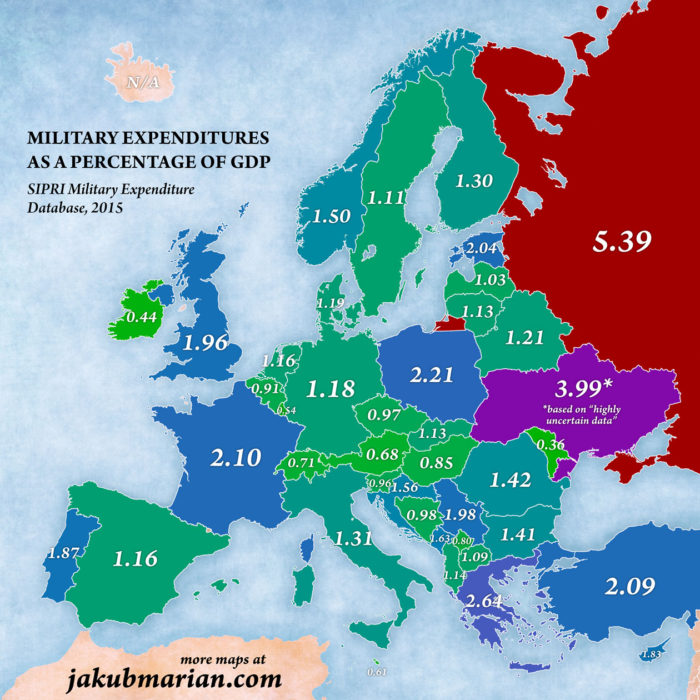He suggested that it was understandable that Americans such as Trump were critical of the defence spending of nearly all European Allies. I agree, but also underlined both that the situation had a background in recent history of the Alliance and that a rise it defence spending east of the Atlantic because of that history would not necessarily help in the real requirement, namely of creating capable militaries out of the present inert, over-staffed Potemkin Villages:
From the start of NATO during the Korean War, the U.S. paid the most. The Continental European partners did something else: they committed their full manpower as conscripts and prepared their economies for defence support within the framework of “total defence”. They also took the risk of making their countries available as the main East-West battlefield and thus faced the total destruction.

The U.S. also paid more because as now it was a global power that also had the Pacific theatre to worry about.
In NATO the U.S. was “paid” by having the near total power to decide what happened, and it earned money on producing nearly all hardware of the Allies.
When the Cold War ended, the U.S. (and UK) used that dominating influence to declare that history had ended and the maintenance of conscription was both anachronistic and waste of money. T Keeping conscription was incompatible with membership of the Alliance. Total defence preparations were therefore unnecessary and improper in the globalised liberal economies of the future.
Of the new Central and Eastern European NATO Member States only Estonia kept conscription. The background was the Finnish example that influenced the main architect of the defence forces, former Soviet tank Polkovnik, later Estonian General, Ants Laaneots. This strong character professional convinced his friend Andrus Ansip and the rest of Reformerakond, the Liberal Party, that he was right, because history might not have ended after all.
Most European Allies were happy to comply, advised by shallow-thinking civil servants convinced that history was irrelevant in this Post-Modern Era. The Ministries of Finance applauded. Now the important part of Alliance solidarity was a willingness and to send your soldiers into harm’s way on American Campaigns.
This both your and my country did, and in Afghanistan both Estonia and Denmark had a higher percentage of their contingents killed than the rest, because we served in the Helmand Province where the U.S. avoided striking the Taliban bases in the Quetta area not to offend Pakistan.
We both showed the required solidarity in campaigns devoid of sound and realistic U.S. strategies for success. The result of the loss of conscription and the adoption of U.S.-type grotesquely over-officered peace time staffs meant the loss of balance between number of cadre and number of units with practical service experience opportunities, the loss of combined-arm balance as well as capable logistic units and the disappearance of reserve structures. All European members concentrated on learning and applying the latest NATO (ex-U.S.) buzzwords in the running of their forces. They forgot that in military organisations what counts is the output in capable and sustainable war structure forces, not the defence budget percent of GDP.
If you have unsound structures such as the Continental NATO members now, a budget increase does not necessarily lead to more military effect.
Now we realised and are told that history did not end, that Article 5 is relevant after all, and that the U.S. expect us to have the initial defence forces that the U.S. and Brits told us to abolish in the 1990s. Suddenly solidarity is no longer a matter of symbolic presence in American campaigns, it is about a budget contributions. This Burden-Sharing balancing that amateurs in and without uniforms ask for will not give defence or deterrence without a fundamental re-booting of structures developed since the end of the former Cold War.